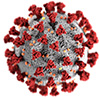Abstract
Undergraduate students benefit from high-impact and inquiry-driven opportunities that bring sociology to life. The goal of this innovative assessment is to facilitate learning sociological content through developing data collection and analysis skills. Developed for an asynchronous online upper-division family sociology course, the “COVID-19 and the...
Download this resource to see full details. Download this resource to see full details.
Details
- Subject Area(s):
- Family, Qualitative Methodology, Research Methods
- Resource Type(s):
- Assessment, Assignment, Class Activity
- Class Level(s):
- College 300, College 400
- Class Size(s):
- Medium, Small
Usage Notes
The project fits most any upper-division course, either online, in person, or hybrid. The project is inquiry-driven and should focus on one research question for all students. Doing so facilitates starting the project very early in the semester and focuses their attention on data collection and analysis. Moreover, a single question is a good way to...
Download this resource to see full details. Download this resource to see full details.
Learning Goals and Assessments
Learning Goal(s):
- Students will be able to conduct sociological research using qualitative strategies
- Students will be able to analyze primary data using sociological concepts and theory that emphasize family diversity in the U.S.
- Students will be able to collaborate on a research project
Goal Assessment(s):
- Students learn about research ethics and practice interview question writing, complete three 15-minute interviews and transcribe them individually, and write an essay reflecting on key learnings, benefits, and experiences.
- Students learn qualitative coding skills, code their own data, and create an analysis plan identifying course concepts that help interpret interview data and show they understand family diversity.
- Students use Microsoft Teams to collaborate on key exercises and complete a peer review at the end of the semester.
When using resources from TRAILS, please include a clear and legible citation.


